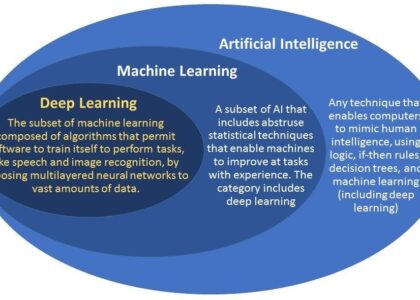The Power of Data Analysis: Unveiling Insights and Driving Decisions
Data analysis is a crucial process that involves inspecting, cleansing, transforming, and modelling data to uncover meaningful information, support decision-making, and drive business strategies. In today’s data-driven world, the ability to effectively analyse data has become a key skill for individuals and organisations across various industries.
Uncovering Insights
By analysing data, businesses can gain valuable insights into their operations, customers, and market trends. Through techniques such as statistical analysis, data mining, and machine learning, patterns and relationships within the data can be identified. These insights can help businesses understand their performance better, predict future trends, and make informed decisions.
Supporting Decision-Making
Data analysis plays a vital role in supporting decision-making processes at all levels of an organisation. By analysing historical data and real-time information, decision-makers can assess risks, identify opportunities, and evaluate the impact of different strategies. Data-driven decisions are more likely to be accurate and effective than those based on intuition alone.
Driving Business Strategies
Data analysis is instrumental in shaping business strategies that are aligned with market demands and customer preferences. By analysing customer behaviour data, businesses can personalise their marketing campaigns and improve customer satisfaction. Additionally, analysing operational data can help optimise processes, reduce costs, and enhance efficiency.
The Role of Technology
Advancements in technology have revolutionised the field of data analysis. Tools such as data visualisation software, predictive analytics platforms, and artificial intelligence algorithms have made it easier to analyse large volumes of complex data quickly and accurately. These technologies empower businesses to extract valuable insights from their data more efficiently than ever before.
Conclusion
In conclusion, data analysis is a powerful tool that enables businesses to unlock the full potential of their data assets. By leveraging the insights gained through thorough analysis, organisations can make informed decisions that drive growth and success. Embracing data analysis as a core competency is essential for staying competitive in today’s fast-paced business environment.
Six Advantages of Data Analysis: Driving Efficiency, Insight, and Innovation
- Identify trends and patterns within the data
- Make informed decisions based on data-driven insights
- Optimise business processes for increased efficiency
- Improve customer satisfaction through personalised strategies
- Enhance forecasting accuracy for better planning and resource allocation
- Gain a competitive edge by leveraging data to drive innovation
Seven Challenges of Data Analysis: Navigating Time, Accuracy, and Expertise
- Data analysis can be time-consuming, especially when dealing with large datasets.
- Errors in data collection or input can lead to inaccurate analysis results.
- Complex data analysis techniques may require specialised skills and expertise.
- Data privacy and security concerns arise when handling sensitive information during analysis.
- Interpreting data incorrectly can result in misguided decisions and strategies.
- Costs associated with acquiring, maintaining, and upgrading data analysis tools and technologies can be significant.
- Over-reliance on data analysis may overlook qualitative aspects that are essential for holistic decision-making.
Identify trends and patterns within the data
One significant advantage of analysing data is the ability to identify trends and patterns hidden within the vast amounts of information. By applying statistical analysis and data mining techniques, businesses can uncover valuable insights that reveal recurring patterns, correlations, and emerging trends. This capability enables organisations to make informed decisions, predict future outcomes, and proactively adjust strategies to capitalise on opportunities or mitigate risks. Identifying trends and patterns within the data empowers businesses to stay ahead of the curve and adapt swiftly to changing market dynamics, ultimately enhancing their competitiveness and driving growth.
Make informed decisions based on data-driven insights
Making informed decisions based on data-driven insights is a key advantage of analysing data. By thoroughly examining and interpreting data, businesses can move away from gut feelings and subjective opinions towards objective and evidence-based decision-making. Data-driven insights provide a clear understanding of past performance, current trends, and future possibilities, empowering organisations to make strategic choices that are more likely to yield positive outcomes. This approach not only minimises risks but also maximises opportunities for growth and success, ultimately leading to a more efficient and effective decision-making process.
Optimise business processes for increased efficiency
Analysing data allows businesses to optimise their processes for increased efficiency. By examining operational data and identifying bottlenecks, redundancies, or inefficiencies, organisations can make informed decisions on how to streamline their workflows. Through data analysis, businesses can pinpoint areas for improvement, implement targeted solutions, and ultimately enhance productivity and performance across the board. This proactive approach to optimising business processes not only saves time and resources but also leads to a more agile and competitive operation in today’s dynamic market landscape.
Improve customer satisfaction through personalised strategies
Analysing data allows businesses to improve customer satisfaction through personalised strategies. By analysing customer data such as purchase history, browsing behaviour, and feedback, businesses can gain valuable insights into individual preferences and needs. This information enables businesses to tailor their marketing efforts, product recommendations, and customer service interactions to meet the specific requirements of each customer. Personalised strategies not only enhance the overall customer experience but also foster loyalty and long-term relationships with customers, ultimately leading to increased satisfaction and retention rates.
Enhance forecasting accuracy for better planning and resource allocation
Data analysis plays a crucial role in enhancing forecasting accuracy, leading to better planning and resource allocation for businesses. By analysing historical data trends and patterns, organisations can make more informed predictions about future outcomes. This enables them to anticipate demand, identify potential risks, and allocate resources effectively to meet changing market conditions. Improved forecasting accuracy through data analysis ultimately results in more efficient operations, cost savings, and strategic decision-making for sustainable business growth.
Gain a competitive edge by leveraging data to drive innovation
By harnessing the power of data analysis, businesses can gain a significant competitive edge by using data-driven insights to fuel innovation. By analysing data effectively, organisations can identify emerging trends, consumer preferences, and market opportunities that may have otherwise gone unnoticed. This deep understanding of the data allows businesses to make strategic decisions that drive innovation, develop new products and services, and stay ahead of the competition in an ever-evolving market landscape. Leveraging data to drive innovation not only enhances a company’s ability to adapt to changing market conditions but also positions them as industry leaders with a proactive and forward-thinking approach.
Data analysis can be time-consuming, especially when dealing with large datasets.
Data analysis can present a significant challenge due to its time-consuming nature, particularly when working with vast datasets. Processing and analysing large volumes of data require meticulous attention to detail and can be a resource-intensive task. The complexity of handling extensive datasets may lead to delays in obtaining actionable insights, impacting decision-making processes and hindering the timely implementation of strategies based on the analysis results. Efficient techniques and tools are essential to streamline the data analysis process and maximise productivity while dealing with substantial amounts of data.
Errors in data collection or input can lead to inaccurate analysis results.
Errors in data collection or input can significantly impact the accuracy and reliability of data analysis results. Whether it’s due to human error, technical issues, or inconsistencies in data sources, inaccuracies in the initial data can propagate throughout the analysis process, leading to flawed conclusions and misguided decisions. It is crucial for organisations to implement robust data quality control measures and validation processes to minimise errors and ensure the integrity of the data being analysed. Failure to address these issues can undermine the effectiveness of data analysis efforts and compromise the trustworthiness of the insights derived from it.
Complex data analysis techniques may require specialised skills and expertise.
Complex data analysis techniques often necessitate specialised skills and expertise, posing a significant challenge for individuals and organisations aiming to harness the full potential of their data. The intricacies involved in advanced data analysis, such as machine learning algorithms or predictive modelling, may require a deep understanding of statistical methods and programming languages. Acquiring and maintaining these specialised skills can be time-consuming and resource-intensive, potentially creating barriers for those without access to dedicated data analysts or training programmes. As a result, the reliance on complex data analysis techniques may limit the widespread adoption of data-driven decision-making practices within certain sectors or among less tech-savvy professionals.
Data privacy and security concerns arise when handling sensitive information during analysis.
Data privacy and security concerns become a significant con when analysing data, particularly when dealing with sensitive information. The process of data analysis involves accessing, manipulating, and storing large volumes of data, which may include personal or confidential details. Ensuring the protection of this data from unauthorised access, breaches, or misuse is paramount to maintaining trust with customers and complying with regulations such as GDPR. Implementing robust security measures and encryption protocols is essential to mitigate the risks associated with handling sensitive information during data analysis.
Interpreting data incorrectly can result in misguided decisions and strategies.
Interpreting data incorrectly can have detrimental consequences, leading to misguided decisions and strategies within an organisation. When data analysis is flawed or misinterpreted, it can distort the true insights hidden within the data, potentially causing businesses to make ill-informed choices that do not align with the actual trends or patterns present. This can result in wasted resources, missed opportunities, and ultimately hinder the overall success and growth of the business. Therefore, ensuring accurate and thorough interpretation of data is crucial to avoid pitfalls and make informed decisions based on reliable insights.
Costs associated with acquiring, maintaining, and upgrading data analysis tools and technologies can be significant.
The costs associated with acquiring, maintaining, and upgrading data analysis tools and technologies can pose a significant challenge for businesses. Investing in robust data analysis tools requires a substantial financial commitment, not only for the initial purchase but also for ongoing maintenance and upgrades to keep up with evolving technology trends. Additionally, training staff to effectively utilise these tools adds to the overall cost. The financial burden of implementing and sustaining data analysis capabilities can be a deterrent for some organisations, especially smaller businesses with limited budgets.
Over-reliance on data analysis may overlook qualitative aspects that are essential for holistic decision-making.
An important con of data analysis is the risk of over-reliance, which may lead to overlooking qualitative aspects crucial for holistic decision-making. While data provides valuable insights and trends, it often fails to capture nuanced human experiences, emotions, and context that play a significant role in decision-making. Ignoring qualitative factors can result in incomplete or biased conclusions, hindering the ability to make well-rounded and empathetic decisions that consider all relevant aspects of a situation. Striking a balance between quantitative data analysis and qualitative considerations is essential for making informed and comprehensive decisions that align with both facts and human values.





